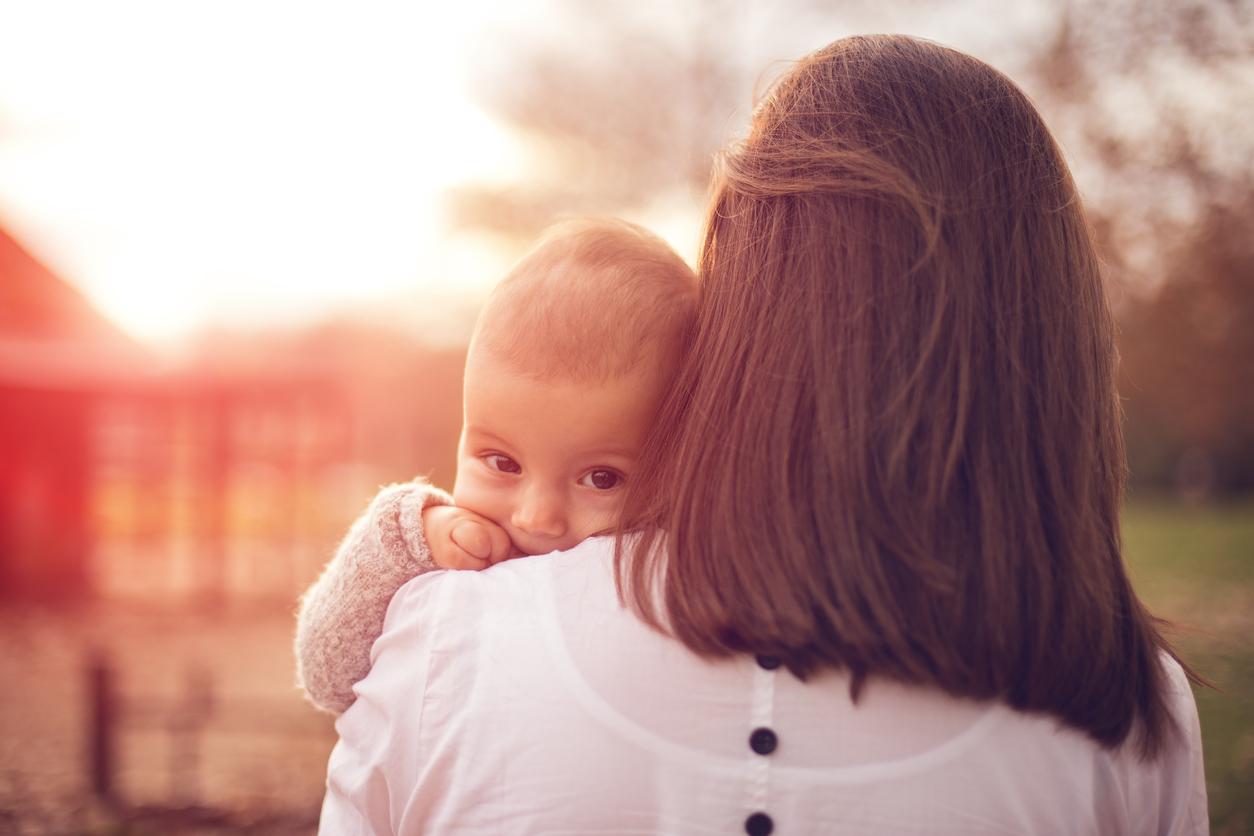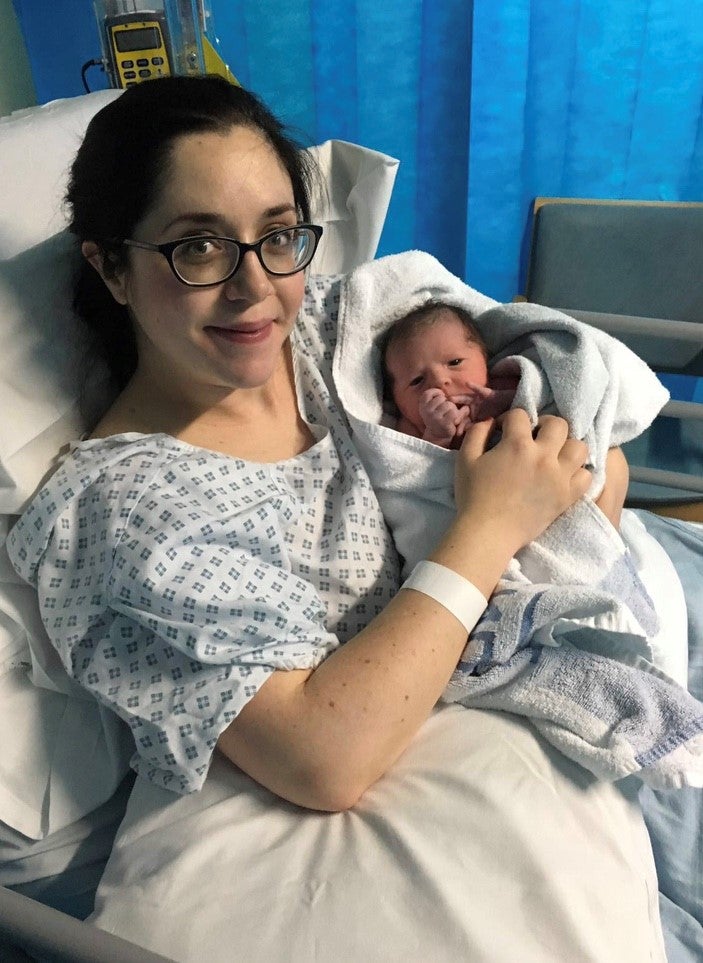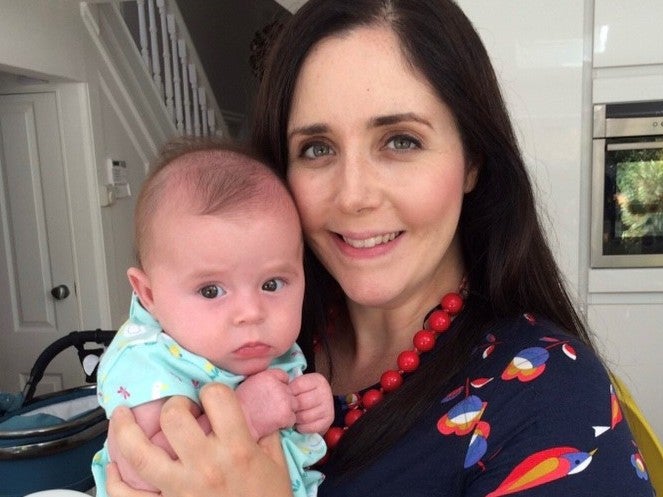Hallucinating, panicked, yet sent home by doctors: One woman’s story of suffering postpartum psychosis
More than 1,400 women develop postpartum psychosis in the UK every year. From hearing voices to believing her brother had died, Sophie Wood tells Katie O’Malley about her experience as a first-time mum


Your support helps us to tell the story
From reproductive rights to climate change to Big Tech, The Independent is on the ground when the story is developing. Whether it's investigating the financials of Elon Musk's pro-Trump PAC or producing our latest documentary, 'The A Word', which shines a light on the American women fighting for reproductive rights, we know how important it is to parse out the facts from the messaging.
At such a critical moment in US history, we need reporters on the ground. Your donation allows us to keep sending journalists to speak to both sides of the story.
The Independent is trusted by Americans across the entire political spectrum. And unlike many other quality news outlets, we choose not to lock Americans out of our reporting and analysis with paywalls. We believe quality journalism should be available to everyone, paid for by those who can afford it.
Your support makes all the difference.Sophie Wood had never truly appreciated the feeling of soft carpet underneath her toes. Nor the luxury of boiling a kettle without being watched, chopping an apple with a knife, or using a hairdryer. But six weeks after being admitted under the Mental Health Act (1983) to a Mother and Baby Unit (MBU), she was slowly starting to remember the minutiae that make life interesting.
“For weeks, I’d had someone sitting at the end of my bed watching me, monitoring exactly what I ate, the medication I was taking, and how I was caring for my baby,” the 35-year-old tells The Independent. “I felt like a prisoner. At the beginning, all I wanted to do was escape.”
After longing to start a family for years, this isn’t exactly how Sophie had envisaged the first few weeks of motherhood. In April 2016, Sophie gave birth to her daughter, Isabella. Like the majority of new mums, she fully expected long sleepless nights and problems latching in the early stages. “I didn’t sleep at all for three to four days after giving birth,” she admits.
“While I was excited and elated to have a baby, I felt entirely responsible for looking after my daughter all the time. I became obsessed with checking she was breathing. Every time she cried I went to pick her and feed her. I felt I needed to be with her, constantly.”
These may sound like the concerns every mum feels after giving birth, but Sophie and her husband soon realised her experience of motherhood wasn’t the norm as her obsession soon turned into delusion. Unbeknown to Sophie, she was suffering from postpartum psychosis (PP) – a severe form of mental illness which usually begins in the first two weeks after childbirth.
National charity Action of Postpartum Psychosis (APP) estimates that more than 1,400 women experience PP each year in the UK (one to two in every 1,000 mothers). Symptoms can include hallucinations, delusions, restlessness, confusion, and a manic mood.
Dr Trudi Seneviratne, chair of the perinatal faculty at the Royal College of Psychiatrists, says it’s often difficult to pinpoint whether someone is suffering from PP or the “baby blues” (when women experience low mood and feel mildly depressed after childbirth) given the natural fluctuations in mood due to hormone changes after a woman gives birth.
However, Seneviratne notes that 75 per cent of women who suffer from PP often exhibit behaviours that make them appear overly-energetic. “They might write down a list of ideas all at once, become busy and obsessive with certain concepts. Their sense of taste, smell and hearing may also become heightened.”
What is postpartum psychosis?
Postpartum psychosis (PP) is a rare but serious mental health illness that can affect a woman soon after she has a baby, the NHS states.
It is estimated that over 1,400 women experience PP each year in the UK (one to two in every 1,000 mothers).
Symptoms of PP include hallucinations, delusions, restlessness, confusion, and a manic mood.
Dr Jess Heron, director of the national charity Action on Postpartum Psychosis concurs, adding: “The early symptoms of PP can be difficult to identify because many women feel a little bit elated and sleep deprived in the first few days after having a baby. There are some mums at particularly high risk of PP: mums who have previously experienced an episode of bipolar disorder, or a previous postpartum psychosis.”
That said, for around half of women – including Sophie – PP can come completely out of the blue.
“The only way I can describe PP is like an iceberg,” she says. “If you look at the pictures of me after I’d given birth, I looked like a perfectly normal and happy new mum holding my baby. Underneath I was suffering from chronic anxiety and confusion.”
While Sophie still doesn’t know what triggered her PP, she believes the lack of aftercare she received in the first few hours following childbirth played a key role. After undergoing an emergency caesarean section as a result of her daughter being in breach (when a baby is born bottom first instead of head first), Sophie found herself becoming increasingly distressed.
“It was around midnight when my husband was booted out of the hospital and I was put on the general ward with other mothers and babies,” she recalls.
“It was pitch black and I was connected to multiple tubes and a catheter. My daughter was screaming and I really felt incapable of helping her. I kept pressing my buzzer but no one came to help. I could see she might need feeding but my milk hadn’t come in. I panicked.”
That night, Sophie tried to breastfeed to no avail, resulting in her nipples becoming raw and bleeding. A midwife later told her that “this feeding malarkey” might not be for her. “It was excruciating,” she says. “I beat myself up about it so much in the first few days.

“My daughter gradually started to lose weight because I couldn’t feed her. I felt I was it was my fault as I couldn’t give her the natural thing she needed. I felt I was failing as a mother.
Four days after coming home from hospital with her child, Sophie experienced her first psychotic episode. After falling asleep amid exhaustion, she recalls having a horrific nightmare. “I woke up screaming in a hot sweat and shaking. My husband ran up the stairs to find me babbling nonsense. I told him I felt unsafe and that I didn’t know what was going on.” Sophie could feel herself getting jittery, battling racing thoughts and talking quickly.
It was so sad for my family to watch me go from being happy, organised, and positive about becoming a mother, to someone so anxious and fearful
Moments later, Sophie’s husband found her doing the Michael Jackson-inspired moonwalk across the landing (“I wasn’t even aware I knew the entire Thriller routine”), before forcing him to watch the Lion King. “I remember holding up my daughter like the monkey on Pride Rock showing Simba to the pride. “Look, she’s ours, she’s amazing,” I kept repeating to my husband. The couple recognised how out of character Sophie’s behaviour was and were increasingly concerned.
“I felt like I was coming in and out of dream world,” she says, describing her mental state at the time. “My husband knew something was wrong and told me he thought I was having a psychotic episode but he was naturally scared to call anyone in fear social services would take me and the baby away.”
Despite visiting A&E that night, Sophie was told she was experiencing the normal anxieties of becoming a new mum and needed sleep. After being handed a cup of tea and a sedative, she was soon sent home.
Over the next few days, her mental state deteriorated rapidly. She began hearing voices in her head and was convinced her brother had died. She even lost the ability to speak and spent hours watching her wedding video on repeat. To this day, she still has the in-depth business plan she wrote out on her phone about a new invention she’d created to help new mums suffering like she was. “I genuinely thought I was the new Richard Branson,” she jokes.
Eight days after giving birth, Sophie was forced into an ambulance and admitted to an MBU which provides support for mothers who experience severe mental health difficulties during and after pregnancy. She remembers her husband breaking down into tears as he signed the forms to have her sectioned.
“It was so sad for my family to watch me go from being happy, organised, and positive about becoming a mother, to someone so anxious and fearful,” she says. “No one saw it coming.”
During her initial stay at the unit, Sophie feared male staff would hurt her and she couldn’t bare people looking at her with Isabella. “I was tearful, quiet, and fearful. I ended up singing a lot to myself. It was a very lonely time,” she says.
Despite taking numerous forms of medication including mood stabilisers, attending group therapy, mindfulness and group counselling sessions, at no point during her time in the facility did anyone tell Sophie she was suffering from PP. She says: “I used to ask people ‘what’s happened to me, why am I here?’ They used to tell me I was unwell which I thought was ludicrous. ‘Unwell’ is what you are when you have a cold or food poisoning.”
While Sophie showed signs of improvement during her time at the unit, her battle with PP was far from over. She suffered from chronic anxiety and feared going outside. For the first month after leaving the MBU, she called the crisis team on a daily basis. “I was traumatised. I kept having flashbacks of what had happened,” she says. She didn’t step foot into a supermarket on her own for six months.

Heron says: “Women go on to make a full recovery, however, the journey to full recovery can be long and difficult.”
According to the NHS, most women will require treatment for PP in hospital, ideally at an MBU. Treatment may include medication, psychological therapy, and on extremely rare occasions electroconvulsive therapy (ECT).
Seneviratne says: “Ninety per cent of sufferers will make a good recovery thanks to a combination of medication which can include anti-psychotics, that have mood stabilising properties, and sedatives that help them to sleep. However, while medication is important, so too are psychological therapies.
“The term ‘psychosis’ is a hugely stigmatising term as it can be a reason why people don’t seek help early enough – PP is a severe condition. It’s important to talk openly about PP and give families the platforms to do so. Sufferers should in no way feel embarrassed about sharing their experiences.’’
As her treatment continued, Sophie underwent counselling, cognitive behavioural therapy (CBT), and was finally diagnosed with PP some four months after giving birth. She came off her medication 11 months later and has attended numerous meet-ups and peer support groups through APP to share her experience. With hopes to have more children in future, she has also discussed several contingency plans with her doctor on how she can try to avoid suffering from PP again.
“We’ve spoken about the need for medication, making contact with a perinatal mental health support nurses, birth plans, bottle feeding – anything so I can feel as calm as possible if I fall pregnant,” she says.
As a result of her experience, Sophie has also become a media volunteer for APP and is setting up a blog to detail her journey through future pregnancies about how she plans to prevent PP, if she can, for women, families, and healthcare professionals.
“It is not the ‘baby blues’ or a bad patch, rather a serious mental health condition. The earlier you get intervention, the healthier you’ll be. It takes a long time to recover from this illness but it is possible, there is hope.”
To find out more information about postpartum psychosis, click here. For more help on the condition, contact www.app-network.org
Join our commenting forum
Join thought-provoking conversations, follow other Independent readers and see their replies
Comments